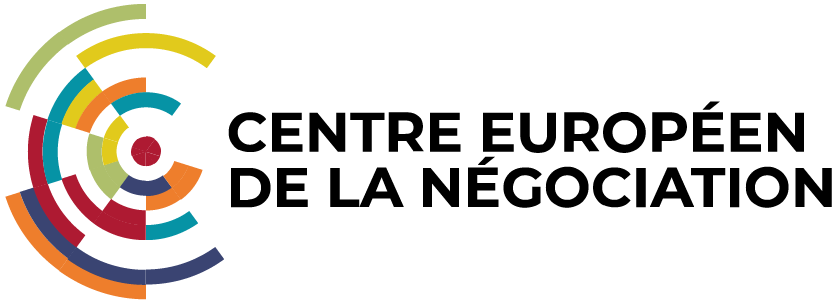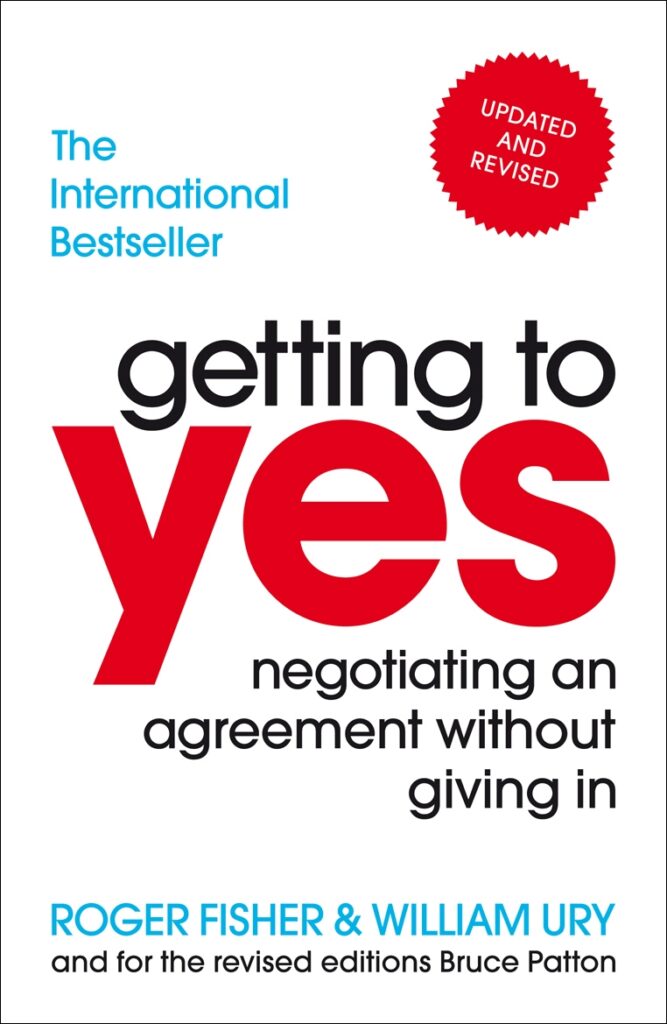
Getting to Yes
Roger Fisher; William Ury
Whether in family life, at work, or in international relations, we all negotiate — often without realizing it. Yet too often, conflicts are settled through confrontation, creating winners and losers and paving the way for new disputes.
Written by negotiation experts Roger Fisher and William Ury from the Harvard Negotiation Project, Getting to Yes offers practical, proven strategies for reaching agreements that satisfy all parties.
Their approach, known as principled negotiation, encourages separating people from the problem, focusing on interests rather than positions, and seeking solutions based on fairness and mutual gain.
Clear, practical, and transformative, this book turns negotiation from a source of stress into an opportunity for collaboration. A timeless reference and a must-read for anyone who negotiates — in any field.
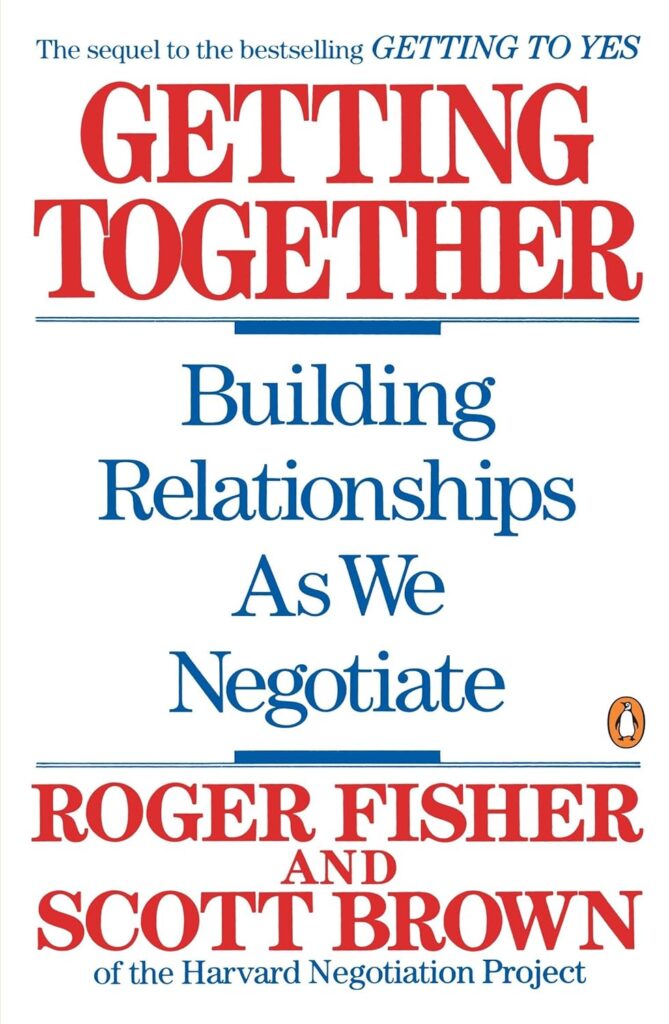
Getting Together
Roger Fisher; Scott Brown
Achieving our goals depends not only on our ability to negotiate, but above all on the quality of the relationship between the parties involved — whether in couples, friendships, or governments.
We are all different, and establishing a solid relationship with the person we negotiate with is the foundation of any successful negotiation. Just as we can learn to negotiate, we can also learn to build relationships based on trust, respect, and understanding.
Drawing on the key principles of the international bestseller Getting Together by Roger Fisher and Scott Brown, this book provides a clear, practical method for creating strong, effective relationships that can manage differences and foster cooperation in every field — both in the short and medium term
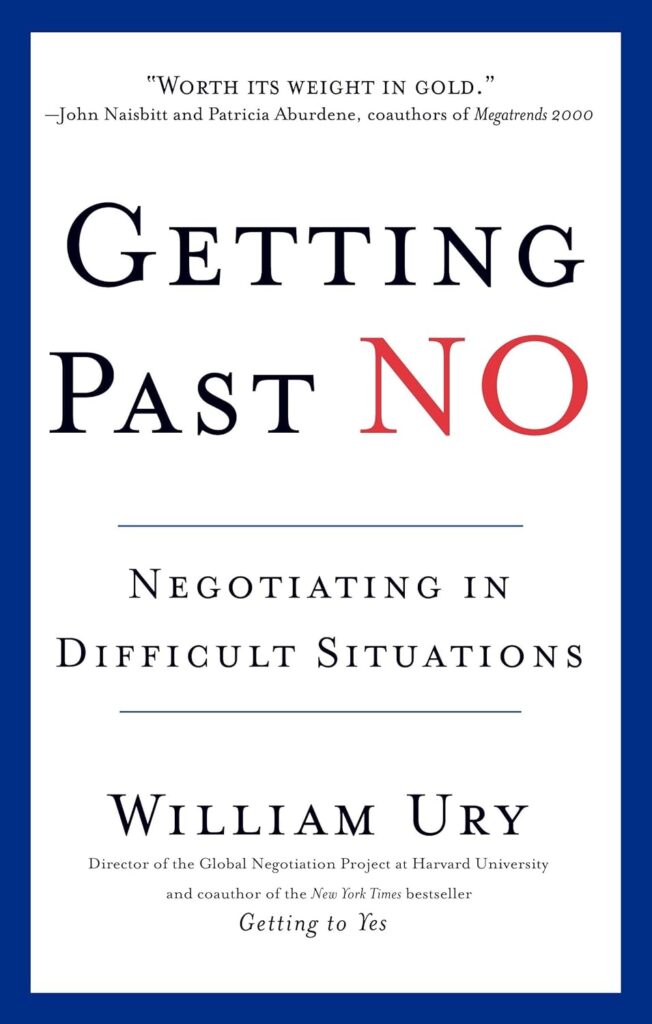
Getting Past NO
William Ury
In 1981, Roger Fisher and I co-authored Getting to Yes: Negotiating Agreement Without Giving In. The book was a great success and remains so today. Yet many readers kept asking: How do you negotiate with someone who refuses to listen, gets angry, or insists on having their way — in short, someone who refuses to negotiate?
Overcoming the refusal to negotiate requires more than ordinary negotiation skills. This book takes those challenges head-on, transforming the techniques of successful negotiation into a universal method: the breakthrough strategy.
Here, William Ury explains how to turn confrontation into cooperation — how to “teach a reluctant partner to dance.” By applying this approach, you can defuse hostility, sidestep resistance, expose manipulative tactics, and guide even the most difficult counterpart toward constructive dialogue.
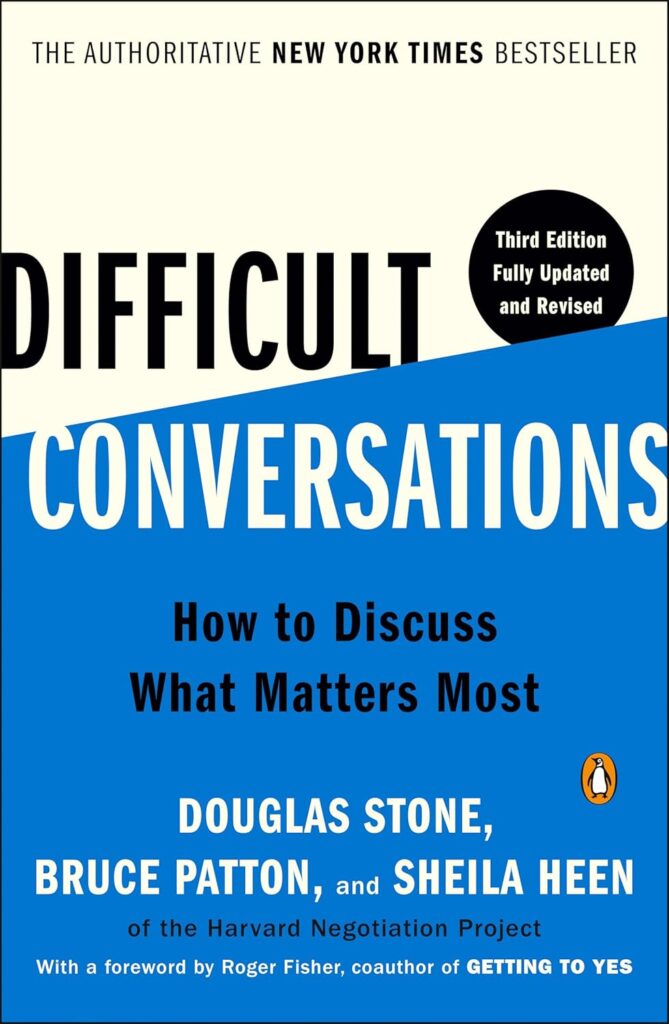
Difficult Conversations
Douglas Stone; Bruce Patton; Sheila Heen
Despite your best intentions, some conversations inevitably turn tense — each side convinced they’re right and the other is wrong. You find yourself torn between staying silent to keep the peace or speaking your mind and risking an argument. Difficult Conversations: How to Discuss What Matters Most shows you how to escape these traps.
Based on fifteen years of research and thousands of real-life cases, the authors present a clear, practical, and proven method for understanding and managing all kinds of challenging discussions.
Whether you want to prevent the next emotional outburst at work or avoid another argument at home, this book teaches the most vital skill of all — how to talk with others when it really matters.
Written by Douglas Stone, Bruce Patton, and Sheila Heen, Difficult Conversations goes beyond conventional communication advice, revealing the hidden dynamics that derail dialogue and offering concrete tools to transform conflict into understanding.
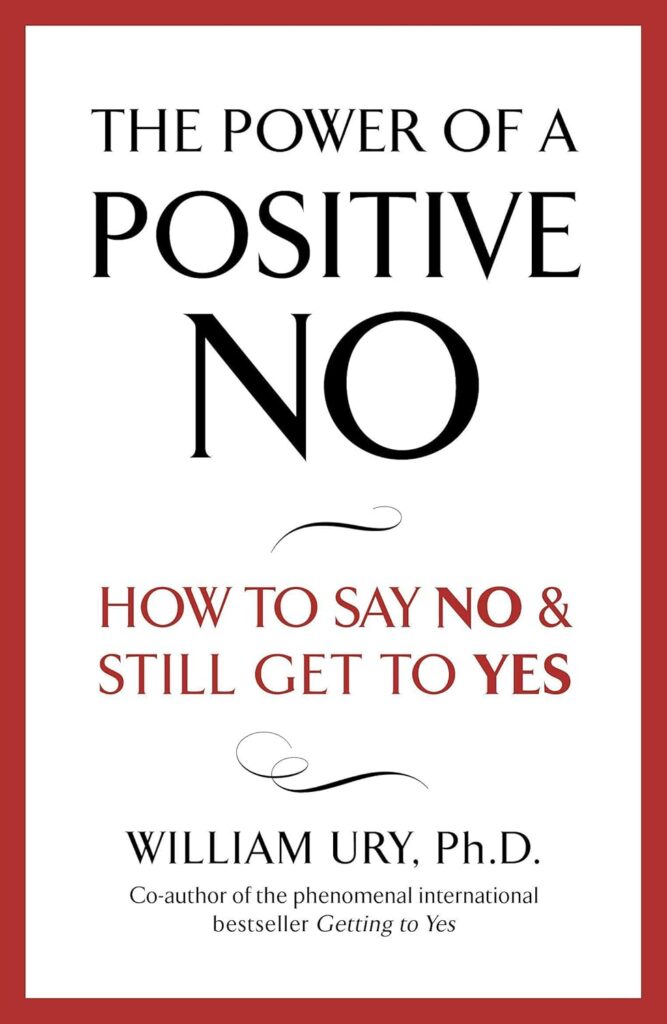
The Power of a Positive NO
William Ury
How do you say “no” without damaging relationships — to a boss, a relative, or even your neighbors?
In The Power of a Positive No, William Ury shows a better way. Forget saying “yes” just to avoid conflict or “no” too aggressively. Learn the art of the positive no: how to assert yourself, set boundaries, and still maintain strong, respectful relationships.
A practical, actionable method that turns refusals into opportunities for genuine “yeses.
